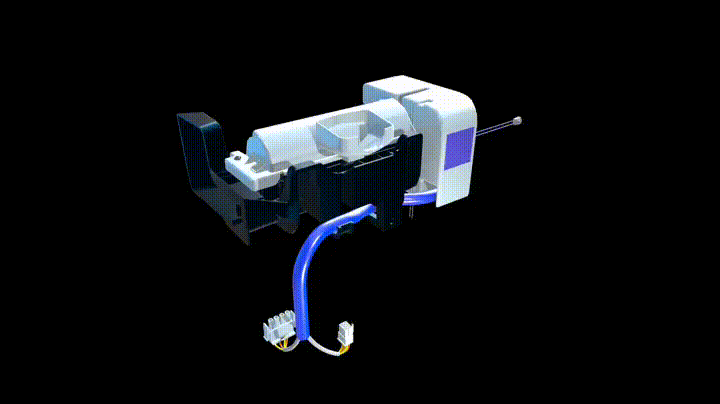_gif.gif)
AR SOLUTION

ICE BOX MACHINE
ROLE & CONTRIBUTIONS
UX designer
Information architecture
Visual design
PrototypingTIMELINE & TEAM
3 months
Principal engineer
3D Artist
Unity developer
Manager
OVERVIEW
GE faced significant challenges in delivering faster servicing and accurately identifying appliance issues, particularly with the frequently problematic ice makers in their refrigerators.
GE APPLIANCES
AR tool for on-site service repair and problem identification for Appliances.

SOLUTION
We introduced GE with an on-site augmented reality (AR) application. This innovative solution allows technicians to accurately diagnose problems and follow step-by-step repair instructions using AR headsets, significantly reducing errors and improving customer satisfaction.
01
The new AR solution helped in reduction of problem discovery.
02
The tool helped engineers address customer issues efficiently, reducing the impact of understaffing.
OUTCOMES
PROCESS

01/ EVALUATION
TARGET USER
Service Engineers.

CURRENT WORKFLOW
DESIGN DECISION 01
Organized the current workflow to
find the pain points.
RESULT
Identified major 2 pain points in the workflow.
PAIN POINT 01
Accuracy of the identification
of the problem.
PAIN POINT 02
Recursive errors.

ICEBOX MACHINE
02/ SERVICE CHECK FLOW
DESIGN DECISION 01
Introduced a new service check flow for better problem discovery.
RESULT
Refined architecture helped GE adopt a new solution to their servicing problem.

REFINED ARCHITECTURE
INSIGHT 01
Refined architecture provides step-by-step guidance for engineers to resolve issues.
INSIGHT 02
Service engineer has the option to visualize the replaceable and non-replaceable parts.
DESIGN DECISION 02
with the new architecture, we updated the current workflow
RESULT
New workflow helped in faster
problem identification and more
visual stats to the problem.

NEW WORKFLOW
03/ PROTOTYPING
DESIGN DECISION
The AR information was designed from the stats of the server.
RESULT
While the solution is being iterated but did solve the major problem of what GE was facing.

INSIGHT 01
Prototyping helped in faster iteration for the mixed reality solution.
INSIGHT 02
Prototyping helped in faster development and solving the right issues.
04/ REFLECTIONS
01 USABILITY SESSIONS
Designing MR interfaces requires understanding 3D environments and user interactions, including gestures, voice commands, and eye tracking.
02 IDEATION
MR design requires understanding digital and physical world interactions, considering context, spatial awareness, and environmental variability.
03 FEASIBILITY
Balancing stakeholder's objectives -financial performance, innovation, user experience, and branding with MR project goals is challenging.
WHAT WOULD I DO DIFFERENTLY ?
Intensifying prototyping and testing to test in diverse environments and also, identify and resolve issues faster.
Next cases
Check out other case studies.




